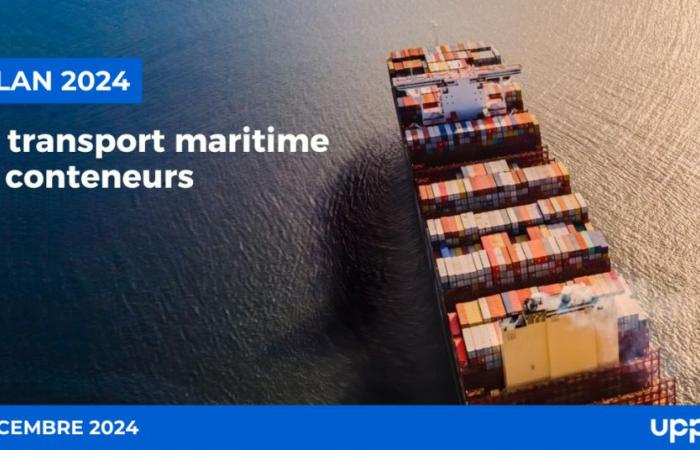2024 was marked by disruptions in the Red Sea, which saved the financial results of shipping companies and undermined environmental efforts. A look back at this year 2024 in 10 key points.
The year 2024 looked bad for shipping companies. In their first budgetary frameworks, they anticipated sharply declining financial resultsas the Asia-Europe freight rate market plunged below 4 digits in October 2023. But a geopolitical event radically changed the situation. After the attacks carried out by Hamas on October 7, 2023, Israel launched a virulent response. A few weeks later, on November 17, 2023, Houthi rebels in Yemen carried out the spectacular capture of the ro-ro ship Galaxy Leader, claiming to act “in solidarity” with Hamas. An event which marked the start of a spectacular trend reversal.
Houthi rebel attacks on commercial ships have increased in the Red Sea, leading shipping companies, particularly in the containerized shipping sector, to massively reroute their ships through the Cape of Good Hope. This situation was obviously neither anticipated nor desired by the companies. But it did have a saving effect on the restoration of their finances, after a generally gloomy year 2023. It is clear that three years after Covid, a dramatic event has, once again, created exogenous market tension which has benefited carriers. The results of ONE, whose fiscal year runs from April 1 to March 31, provided a striking demonstration of this. While it was in the red for a 2023-2024 financial year, the Japanese company finally made a profit thanks to the results for the first quarter of 2024, due to the sharp rise in freight rates during this period.
Source : Upply Freight Index
However, it should be remembered that at the same time, the operating costs of shipping companies have soared.
1/ Smooth integration of new capabilities
The almost systemic and forced passage of container ships by the Cape of Good Hope route, of which we rediscover in passing the brutality of winter navigation, was an unexpected boost of destiny for the companies, because it intervened at the best time to cushion the arrival of new capacities ordered in the post-covid euphoria.
Basically, the year 2024 ended with an increase in demand of around +7%, for capacities increasing by 3% taking into account the lengthening of the road. At the same time, 2024 saw one of the lowest ship scrapping rates in recent history.
2/ Freight rates beyond expectations
The Transpacific has remained a balanced, active and profitable market throughout 2024, with a windfall effect for companies at the end of the year. While rates tended to crumble in the last quarter on this trade, after the records broken by ports on the American west coast, the announcement of the introduction of additional customs duties by the future Trump administration sparked a burst of advance orders. This made it possible to continue to contain the erosion of freight rates for the end of the year.
On Asia-Europe, the story is different. Giant container ships are definitely proving difficult to fill. Companies had to deal throughout the year with European demand which had become quite sluggish. We did not see a real surge linked to Golden Week or a surge in restocking orders, because stock levels were generally comfortable. The weakness of demand is also reflected in the results of European retail players, many of whom are experiencing serious financial difficulties.
The lengthening of the roads has created sufficient tension on the market to maintain fairly high freight rates for a good part of the year. A certain erosion has been noted since September, while the passage by the Cape of Good Hope route becomes a new norm now integrated into logistics plans and demand remains low. A rebound that we consider to be one-off occurred at the end of the year.
3/ The environment in the background
2024 was to be a year of promises kept in terms of emissions control, with the first measurable progress thanks to the greater use of more virtuous fuels and the inclusion of maritime transport in the Emissions Trading System. the European Union (EU ETS), better known by the English acronym ETS (Emissions Trading System), from January 1, 2024. But patatras, in place of a improvement, the average carbon footprint of a 40′ container on the Asia-Europe axis has deteriorated by 20 to 40% on average compared to 2023, due to the lengthening of roads. This is obviously absolute nonsense, as the climate issue leaves the political field to become societal, with each individual now perceiving the effects, but also economic, with climate disasters whose damage amounts to billions (… ).






